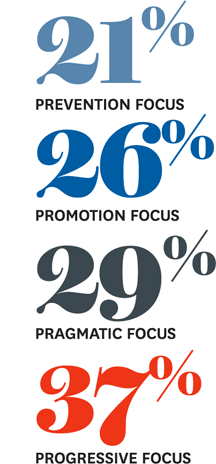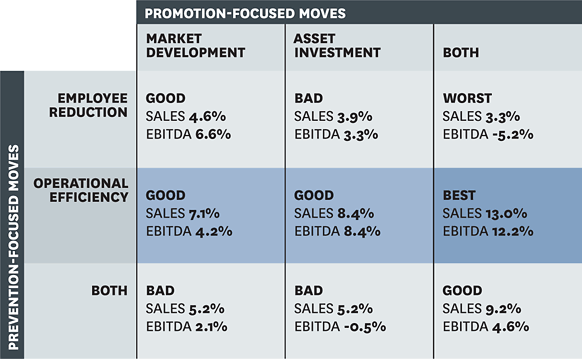What is the best strategy for your organization going into a slow down or full-blown recession? Opinions vary as to whether we’re there or going there now. Developing a mental mode of how you would respond is key to preparing for “Gradually and then suddenly” situation.
HBR’s Roaring Out of Recession attempts to put some rigor into these decisions by looking at the track record of leaders in similar situations in recent times. In their 2010 study Ranjay Gulati, Nitin Nohria, and Franz Wohlgezogen looked at the strategies of 4,700 public companies during recessions in 1980, 1990, and 2000 (the report was published amid the 2008 recovery). Overall the outcomes for the cohorts of companies were:
17% didn’t survive (bankruptcy, acquired, taken private)
74% slow growth (still diminished growth three years after the recession)
9% flourished (better than before slowdown and +10% over rivals)
The paper covers four prominent strategies prevention-focused or loss avoidance, promotion-focused or focused on upside, a pragmatic combination of the two, and progressive companies that achieve an optimal mix of both.
No single strategy proved to be the only path to success. However, the odds of success greatly increased for progressive organizations that selectively used cost-cutting to improve efficiency, not just short-term margins. Additionally, they invested in R&D and marketing (much more than peers), often funding those expansions from savings in efficiencies.

However, just creating a mix of cost-cutting with selective growth is not a winning strategy by itself. Finding the correct blend of efficiency and opportunity requires a level of customer intimacy above competitors to execute well.
“Progressive companies stay closely connected to customer needs—a powerful filter through which to make investment decisions.”
Playing a game of what if, whether alone, in a peer group, or with your team, is an effort that often yields big payoffs. Thinking through how you can position yourself today to be more responsive and intimate with your customers can be the difference between leading the market and being out of it completely. For the community financial institution looking to make those progressive moves, we’re here to help.

